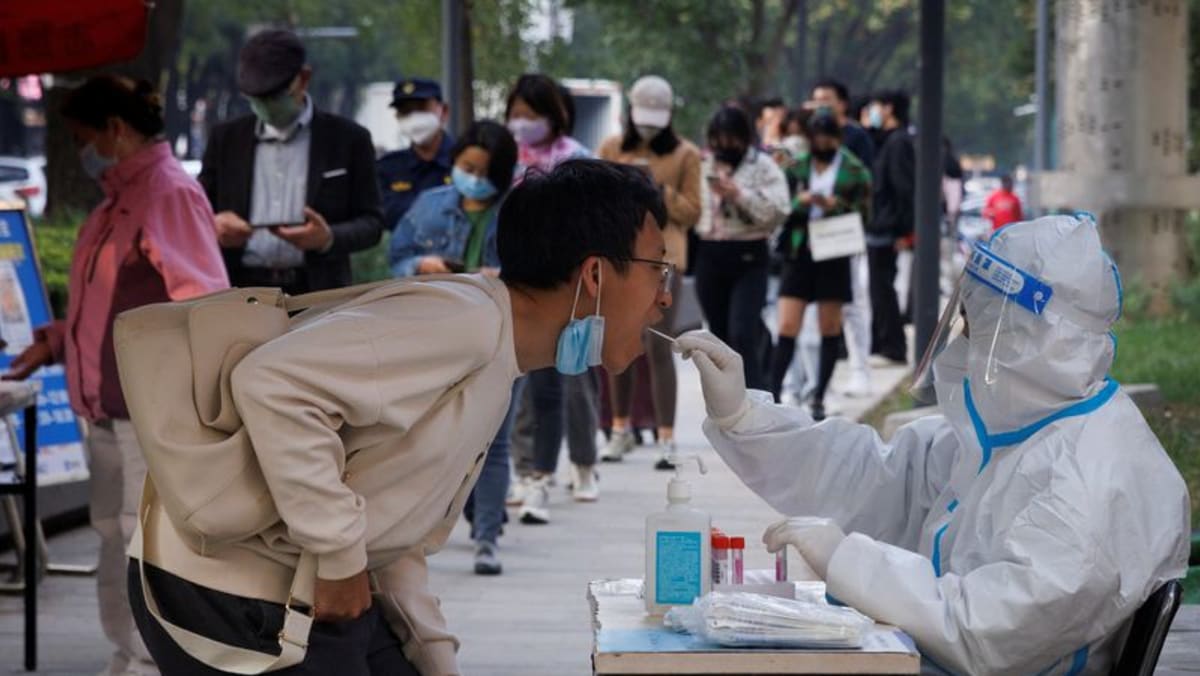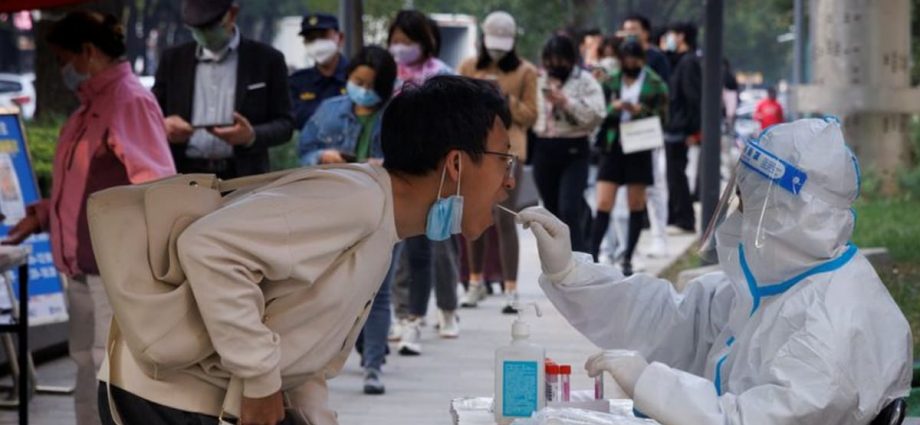
BEIJING: China called for “patience” with its COVID-19 policies and warned against any “war-weariness” as local cases soared to their highest since August, days ahead of a pivotal Communist Party congress.
Many parts of the world are learning to coexist with COVID-19, but China has repeatedly quashed any speculation of a let-up in its tough counter-epidemic policies, which can range from locking down a local community to sealing an entire city, even though fatalities remain low by global standards and symptoms, if any, are mostly mild.
Pressure on local officials to stop outbreaks as soon as they spring up has risen in recent weeks as the highly transmissible Omicron sub-variants BF.7 and BA.5.1.7 appeared in mainland China for the first time, ensnaring travellers during a just-ended week-long national holiday.
Across China, 1,939 locally transmitted cases were reported on Oct 9, the highest since Aug 20 when the southern resort island of Hainan went into a COVID-19 lockdown, according to Reuters calculations based on official data published on Monday.
Thousands of new cases caused by the BF.7 have been reported in Inner Mongolia since Oct 1, turning the region into the country’s latest COVID-19 epicentre and activating localised lockdowns, wrecking havoc on travel plans during the National Day “Golden Week” holiday.
A few days into the Golden Week, the western region of Xinjiang also barred people from leaving its borders, as local cases started to tick higher. Tourists who are stranded in Xinjiang could seek temporary work as electricians, cooks and wood craftsmen, advised authorities in its capital Urumqi.
“The transmission and pathogenicity (of Omicron) have not weakened, and it still poses a relatively large threat to the elderly and people with underlying diseases,” according to a commentary in the state-owned People’s Daily on Monday (Oct 10).
“It is for this reason that we must continue to remain vigilant against the spread of the epidemic, increase our confidence and patience in our country’s epidemic prevention and control policies, and overcome any numbness of the mind, any war-weariness, any thought of leaving things to chance, and any complacency.”
The tighter COVID-19 restrictions came just days before a once-every-five-years Communist Party congress starting on Oct 16, where Xi Jinping is widely expected to break with precedent and extend his decade-long leadership for another five years – or beyond.
Xu, a native from Inner Mongolia who works at an internet firm in Beijing, had planned to take the train back to the Chinese capital on Oct 7 after attending a friend’s wedding in her hometown of Baotou, but has since found herself trapped there due to a local quarantine lockdown.
“What I worry most now is when I can get to return to Beijing,” said Xu, who declined to identify herself further.
“All this waiting around is tough.”

